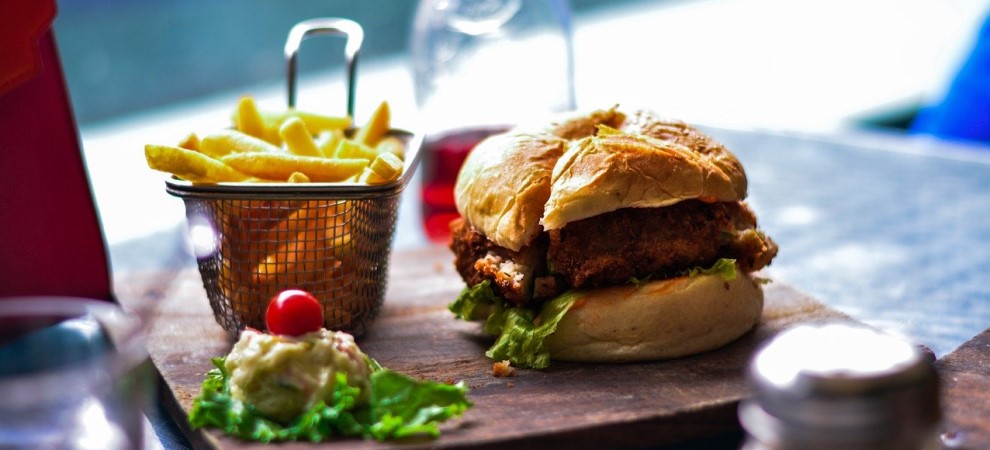Prime Minister Boris Johnson has certainly had a challenging year. As the country battled the coronavirus pandemic, Johnson himself contracted the virus, ending up in intensive care back in April. Since recovering from Covid-19, the PM has set his sights on the UK’s obesity problem.
At the end of July, Boris Johnson unveiled the government’s new Better Health campaign. These new measures seek to promote healthy habits around food and exercise. As the Covid-19 pandemic continues, research has revealed that obese people are up to 40% more likely to die of coronavirus than those who have a healthy weight. However, the PM’s new strategy has its critics. Mental health experts, eating disorder charities, and restaurant owners alike have expressed their concerns over the new measures.
Today’s blog will examine the new Better Health campaign. We’ll discuss how it will affect you, why it has been criticised, and whether it will be helpful or harmful in the long run. We’ll also be sharing some of our own top tips for healthy eating and exercise.
What is the Better Health Campaign?
Currently, the majority of adults in the UK are overweight: 67% of men and 60% of women, with those in their mid-50s and 60s most likely to be carrying excess weight. What’s more, around 1 in 3 children leave primary school overweight or obese. The pandemic has made this problem even more urgent, since overweight people are more likely to become severely ill with Covid. With this in mind, the Better Health campaign aims to have us eating less unhealthy foods and exercising more in order to lose weight. Some of the campaign’s measures will include:
- Banning advertisements of food that is high in fat, sugar, or salt before 9pm. This would affect television advertising and possibly online ads too.
- Ending ‘buy one get one free’ offers on foods high in fat, sugar, or salt. Shops will be encouraged to offer discounts on healthy snacks instead.
- Calorie labelling on menus in restaurants, cafes, and takeaways. Those with more than 250 employees will need to display the calorie content of the food they sell.
- Offering a new NHS weight loss app to help people shift the extra pounds.
- Doctors will be encouraged to prescribe cycling to overweight patients and/or refer them to weight loss services.
Obesity and the NHS
The Better Health campaign puts an emphasis on helping the NHS. According to the latest statistics, there were 11,117 hospital admissions directly linked to obesity in 2018/19. This is a 4% increase on the previous year. In 2020, health has been at the forefront of everyone’s minds for obvious reasons. According to the government website:
Excess fat can affect the respiratory system and is likely to affect inflammatory and immune function. This can impact people’s response to infection and increase vulnerability to severe symptoms of COVID-19.
After all, the Prime Minister himself has stated that his weight was a factor in how severely he suffered from coronavirus. Since leaving hospital, Boris Johnson is reported to have lost more than a stone in weight. He urged other overweight people to do the same, saying:
If you can get your weight down a bit and protect your health, you’ll also be protecting the NHS.
Celebrity chef Jamie Oliver has welcomed the government’s new strategy. He said the plans were “a huge step in the right direction.” However, not everybody has been so quick to praise this new initiative…
Criticisms of the Better Health Campaign
The government’s new anti-obesity strategy has seen more than a few vocal critics. From mental health experts to eating disorder charities to pub and restaurant owners, lots of people are concerned.
The Causes of Obesity
Perhaps the most common criticism of the campaign is that it overlooks the root causes of obesity. Studies consistently show a strong link between obesity and poverty. People from the most deprived areas of the UK are by far the most likely to be overweight or obese. Banning ‘buy one get one free’ offers on crisps, chocolates, and sweets does nothing to make healthy food any cheaper, critics point out. UK food bank usage has soared in recent years, with a record 1.9 million food parcels being distributed by the Trussell Trust in the year ending March 2020. This was an increase of 18% on the previous year and a staggering 74% increase since 2015/16.
Critics have accused the government of blaming the public for the UK’s weight problems, rather than tackling the root causes of obesity. Those who are find themselves in poverty, after all, probably have more pressing concerns than losing weight. Generally, the cheapest foods tend to be higher in calories but not necessarily rich in nutrients. Many low-income families also live far away from the biggest supermarkets, where healthy food might be most affordable. If, as the evidence suggests, poverty causes obesity, the government should initially focus on reducing poverty, they argue. By telling people to help the NHS by losing weight, some people accuse the government of blaming NHS strain on overweight people, overlooking years of budget cuts.
Mental Health Risks
Experts in mental health and eating disorders have also criticised the campaign. They say mandatory calorie labelling poses a grave risk to those struggling with eating disorders, as well as those who might be more vulnerable to developing them. Beat, the eating disorder charity, made the following statement on their website:
Beat recognises the importance of reducing obesity, but it is vital that the public are not shamed into losing weight in an attempt to solve this problem. This approach oversimplifies obesity, reducing people’s weight to a matter of individual choice and ignoring the many complex factors involved, which may include eating disorders.
Others have commented on the proposed weight loss app, which is designed to help overweight and obese adults lose weight. People have pointed out that there is nothing to stop children, underweight people or those of a healthy weight using the app too, even though it is not intended for them.
Mixed Messages?
Meanwhile, many people accused the government of hypocrisy in launching the Better Health campaign alongside the Eat Out To Help Out scheme, which offered half price meals in restaurants, pubs and cafes throughout August. Brits claimed more than 35 million meals through the scheme in its first two weeks alone. Research suggests that we consume far more calories eating in restaurants than we do when eating at home. The Chancellor’s Eat Out to Help Out scheme was seen by some as undermining the Prime Minister’s obesity strategy and vice versa.
Restaurant owners have also expressed their concerns. Covid safety measures like the nationwide lockdown had enormous effects on the whole hospitality sector. Now, they say that the costs of calorie labelling alongside the pressure on individuals to eat healthier will damage their businesses even more.
Shame and Blame
Over the years we’ve seen countless fad diets come and go. From paleo to keto to intermittent fasting, they all have one thing in common: a very slim chance of actually working. According to scientific studies, 97% of dieters will regain any weight they lost within three years. Many will put more back on than they lost in the first place. The ineffectiveness of dieting is fairly well-known among experts, but calorie-counting continues to be the most common way people try to lose weight.
Previous anti-obesity strategies from the government have had limited success. Now, many people worry that the Better Health Campaign will only motivate people to lose weight temporarily through shame and guilt.
What Do You Think?
We’d love to know your thoughts on the government’s new obesity strategy. Why not leave us a comment below and share this article with someone you know?
How to Live Healthy
Here on the LifeConnect24 blog, we’ve had plenty of discussions about healthy eating, exercise, and fitness. Below, you can find links to some of our previous articles, including healthy eating tips and our top sports for older people.
Eating
- An In-Depth Guide To Healthy Living
- The Eatwell Guide: A Well-Balanced Diet
- A Closer Look at the Mediterranean Diet
Exercise
- Top Sport and Fitness Activities for Older People
- Top 5 Cardio Exercises for Older People
- 7 Benefits of Running in the Morning
- 5 Benefits of Cycling
Protecting Your Health
If you have any worries about your health, a Lifeline alarm is an excellent way to get peace of mind. The simple system means that help is always at hand, 24/7, 365 days a year. If you have a fall, feel ill, or are concerned in any way, all you need to do is press your emergency button. This will connect you immediately to a member of our Response Team, who will reassure you and send help directly to your home.
For more information on this life-saving service, read our guide to the Lifeline alarm or give our friendly team a call on 0800 999 0400. Alternatively, you can get in touch online or request a call back on our Contact Us page.
You can also order your new Lifeline alarm online today.
Don’t forget to use discount code BLOG2020 at checkout to get £10 off your new Lifeline alarm.





Leave A Comment